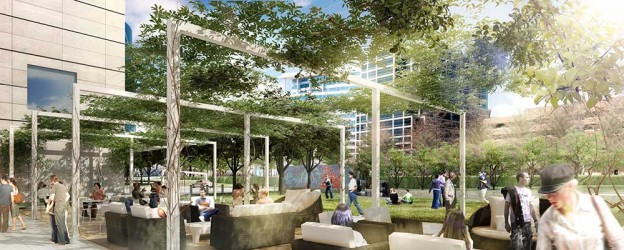
Youth Food Security – Program (YFSP)
We aim to establish across Victoria, then Australia wide, a network of community based Café’s. This Program focuses as a first step on their establishment at or adjacent to relevant tertiary institutions.
A recent Survey into student welfare across Australian Universities revealed;
“66% of tertiary students are living at or below the poverty line and 17% of these go without a meal every day”.
Australian University Association Survey 2013
Students living on the poverty line –
“Heather Richards says it would be a stretch for students on the allowance to pay new on-campus accommodation fees.”So we understand that on campus accommodation the cheapest will be $172.50 a week for a single room and so a student on Youth Allowance if they get rent assistance as well they will be left with only $89.35 to live on each week,” she said.
“That’s to cover everything like all their food, any transport they might need to undertake.
“That is not a lot of money, that is hardly anything.”
ABC News Updated Mon 5 Nov 2012, 7:30am – Newcastle
To put the Australian Universities Survey into perspective in 2013-2014 there were 1,012,248 full time University students across Australia with 668,084 (66%) at or below the poverty line and of these 113,574 (17%) of students went without a meal every single day!
The Australian University Association Survey also outlined that low income is a barrier for youth not entering tertiary studies in the first place, or for those attending university, the ongoing financial pressures was a main reason for many leaving their studies.
UrCommunity Cafés
Once set up in or near relevant campuses the Cafés would allow the students and Café staff access to nutritious free meals potentially seven days a week. There is no cost charged for the free meal menu items which would provide a tremendous benefit to the student welfare in addressing the issues specifically identified in recent studies;
The students can attend the Café for just the free meals component or, they may also take up the opportunity of participating as an active Member of the UrCommunity Timebanking System and/or as a volunteer in the Community Café, Food Forest or other projects.
Our Cafes are not just about food but are also about engagement and inclusiveness through a range of initiatives, programs as well as activities, both formal and informal.
UrCommunity Sustainability – Food Forests
We will work with the Universities to establish suitably sized Backyard Food Forest(s) or have them collaborate with us to develop Commercial Food Forest(s) at relevant campuses. As they don’t require on the ground sites to work (and for the commercial model no sunlight) and are fully self- contained these can be located in differing spaces on campuses including the unused roof tops of appropriate buildings or in other locations.
Over time, it is envisaged that all the produce required by any of the established UrCommunity Cafés will be provided by these food forests with any surplus produce available to the community and the students free or at a minimal outlay. The commercial version could also provide produce across the entire university for use in functions, food service, providing benefits to students and staff as well as underpinning the sustainability of the Programs.
Both systems also offer the opportunity for engagement of volunteers to be trained and learn about the systems, sustainability, food security, student or faculty research opportunities, joint studies, reports and publications.
Students can benefit in a number of ways from volunteering to work in the food Forests with appropriate recognised training, to obtaining produce organically grown supplied on a regular basis either from the free meal service at the cafes or directly at the cafes from surplus supplies for their own preparation and consumption.
UrCommunity Timebanking System
Students and staff could engage and participate in the UTS for the free credits for meals service at the Community Cafes or become fully involved in volunteering and/or exchanging their skills for further time credits.
Potential direct benefits to students (depending upon their choice and level of involvement);
- Access to nutritious free meals on a daily basis over 5 to 7 days (depending upon campus access)
- Eliminate the issue of food security, saving students money and increasing their financial capacity
- Assisting them to focus more on their studies and achievements by lessening food security issues, stress and cost
- Engage in meaningful activities building confidence and connectedness
- Become members of an active and inclusive community
- New skills and training available in café or food forest operations
- Utilise existing skills or develop new skills in exchange for “time credits”
- Utilise their “time credits” for other services and training via the UrCommunity Timebanking System
Benefits to the University;
- Improved student health, welfare and an ability for greater student academic outcomes
- Access to free meals and/or produce on a daily basis for their students
- Joint participation in a cutting edge social enterprise program with research and other applications
- Opportunities for student course projects on various aspects from, marketing, social media, design, publishing, research, social enterprise, etc
- Ability of UrCommunity to calculate and demonstrate the social return on investment (SROI)
- Data capture via Timebanking System which can be broken down as needed
- Improved standing by distinguishing the University in terms of supporting the above
If you are interested in this Program or would like to know more please Contact Us.
